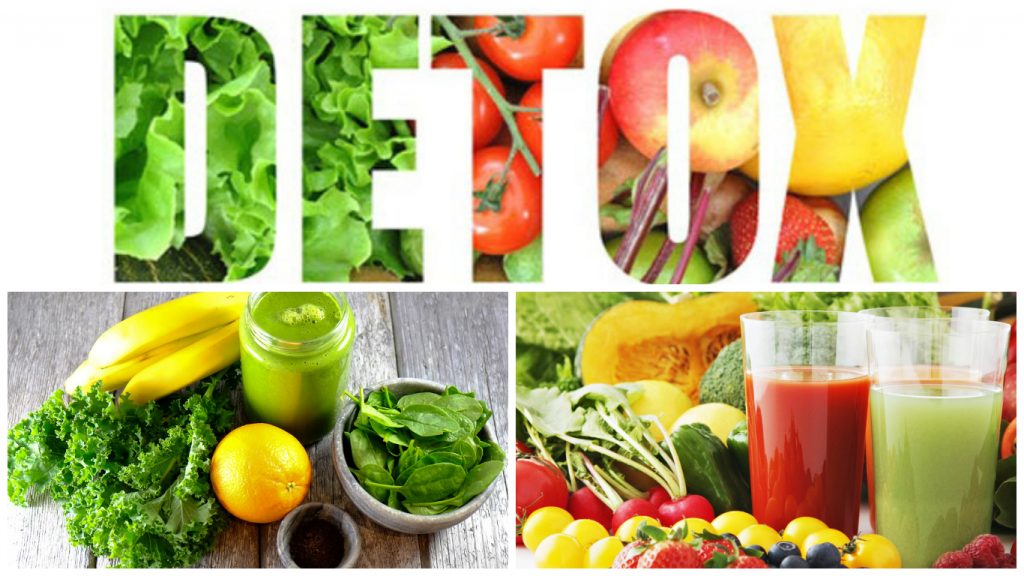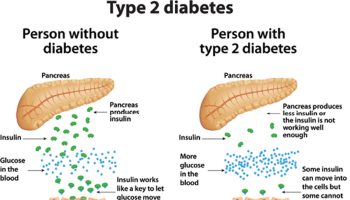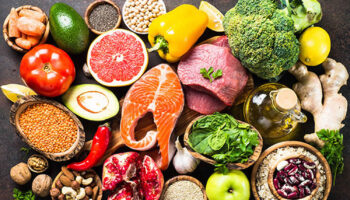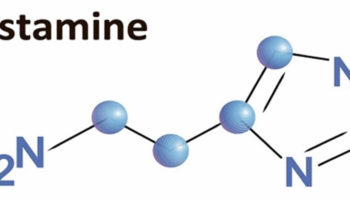
The Detox Diet
Before it was co-opted in the recent craze, the word “detox” referred chiefly to a medical procedure that rids the body of dangerous, often life-threatening, levels of alcohol, drugs, or poisons. Patients undergoing medical detoxification are usually treated in hospitals or clinics. The treatment generally involves the use of drugs and other therapies in a combination that depends on the type and severity of the toxicity 1.
Infomercials and websites urge you to eliminate the buildup of toxins that supposedly results from imprudent habits or exposure to hazardous substances. But the human body defends itself very well against most environmental insults and occasional indulgences 2. Detoxification (detox) diets are popular, but there is little evidence that they eliminate toxins from your body 3.
The detox programs now being promoted to the health-conscious public are a different matter. These are largely do-it-yourself procedures aimed at eliminating alleged toxins that are held responsible for a variety of symptoms, including headache, bloating, joint pain, fatigue, and depression. Detox products are not available by prescription; they are sold in retail stores, at spas, over the Internet, and by direct mail. Many are advertised as useful for detoxifying specific organs or systems; others are portrayed as “whole body” cleansers. With a wide range of detox products available at your local pharmacy, celebrity eating plans popping up on your social media feeds and new books on the topic appearing regularly, there’s no doubt the ‘detox diet’ business is a lucrative one.
Specific detox diets vary — but typically a period of fasting is followed by a strict diet of raw vegetables, fruit and fruit juices, and water. In addition, some detox diets advocate using herbs and other supplements along with colon cleansing (enemas) to empty the intestines.
Some people report feeling more focused and energetic during and after detox diets. However, there’s little evidence that detox diets actually remove toxins from the body. Indeed, the kidneys and liver are generally quite effective at filtering and eliminating most ingested toxins.
The only type of detox diet that is worthwhile is one that limits processed, high-fat, and sugary foods, and replaces them with more whole foods like fruits and vegetables. That clean-eating approach is your best bet to getting your body in tip-top shape.
So why do so many people claim to feel better after detoxification ? It may be due in part to the fact that a detox diet eliminates highly processed foods that have solid fats and added sugar. Simply avoiding these high-calorie low-nutrition foods for a few days may be part of why people feel better 3.
You Body’s Own Detox System
You tend to forget that your body is equipped with a detoxification system of its own 1, which includes the following:
- The skin. The main function of the body’s largest organ is to provide a barrier against harmful substances, from bacteria and viruses to heavy metals and chemical toxins. The skin is a one-way defense system; toxins are not eliminated in perspiration.
- The respiratory system. Fine hairs inside the nose trap dirt and other large particles that may be inhaled. Smaller particles that make it to the lungs are expelled from the airways in mucus.
- The immune system. This exquisitely orchestrated network of cells and molecules is designed to recognize foreign substances and eliminate them from the body. Components of the immune system are at work in blood plasma, in lymph, and even in the small spaces between cells.
- The intestines. Peyer’s patches — lymph nodes in the small intestine — screen out parasites and other foreign substances before nutrients are absorbed into the blood from the colon.
- The liver. Acting as the body’s principal filter, the liver produces a family of proteins called metallothioneins, which are also found in the kidneys. Metallothioneins not only metabolize dietary nutrients like copper and zinc but also neutralize harmful metals like lead, cadmium, and mercury to prepare for their elimination from the body. Liver cells also produce groups of enzymes that regulate the metabolism of drugs and are an important part of the body’s defense against harmful chemicals and other toxins.
- The kidneys. The fact that urine tests are used to screen for drugs and toxins is a testament to the kidneys’ remarkable efficiency in filtering out waste substances and moving them out of the body.
Summary of your body’s own detox system
The human body can defend itself very well against most environmental insults and the effects of occasional indulgence. If you’re generally healthy, concentrate on giving your body what it needs to maintain its robust self-cleaning system — a healthful diet, adequate fluid intake, regular exercise, sufficient sleep, and all recommended medical check-ups. If you experience fatigue, pallor, unexplained weight gain or loss, changes in bowel function, or breathing difficulties that persist for days or weeks, visit your doctor instead of a detox spa.
Master Cleanse Detox Diet
A seemingly infinite array of products and diets is available for detoxifying the entire body. One of the most popular is the Master Cleanse diet, favored by a number of Hollywood celebrities, supposedly to restore energy, lose weight, and relieve symptoms of chronic conditions like arthritis and fibromyalgia. Dieters take a quart of warm salt water in the morning; consume a 60-ounce concoction of water, lemon juice, maple syrup, and cayenne pepper throughout the day; and finish with a cup of laxative tea in the evening. Proponents of the Master Cleanse diet recommend adhering to it for at least 10 days.
Evidence of effectiveness:
There are no data on this particular diet in the medical literature. But many studies have shown that fasts and extremely low-calorie diets invariably lower the body’s basal metabolic rate as it struggles to conserve energy. Once the dieter resumes normal eating, rapid weight gain follows. Much of the weight loss achieved through this diet results from fluid loss related to extremely low carbohydrate intake and frequent bowel movements or diarrhea produced by salt water and laxative tea. When the dieter resumes normal fluid intake, this weight is quickly regained.
Risks:
The diet is lacking in protein, fatty acids, and other essential nutrients. Carbohydrates supply all the calories — an extremely low 600. The daily laxative regimen can cause dehydration, deplete electrolytes, and impair normal bowel function. It can also disrupt the native intestinal flora, microorganisms that perform useful digestive functions. A person who goes on this diet repeatedly may run the risk of developing metabolic acidosis, a disruption of the body’s acid-base balance, which results in excessive acidity in the blood. Severe metabolic acidosis can lead to coma and death.
Intestinal Cleansing
Numerous kits are marketed for this purpose, most of which include a high-fiber supplement, a “support” supplement containing herbs or enzymes, and a laxative tea, each to be used daily. Manufacturers of the herbal detox kits recommend continuing the regimen for several weeks. Such regimens may be accompanied by frequent enemas. The aim is to eradicate parasites and expel fecal matter that allegedly adheres to the intestinal walls 2.
Evidence of effectiveness:
Several studies suggest that milk thistle, which is often included as a supportive supplement, may improve liver function with few side effects. But there’s no medical evidence for the cleansing procedure as a whole. Promotional materials often include photographs of snake-like gelatinous substances expelled during cleansing. When these pictures are not faked, they are probably showing stool generated by large doses of the regimen’s fiber supplement. More important, the rationale for intestinal cleansing — to dislodge material adhering to the colon walls — is fundamentally mistaken. When fecal matter accumulates, it compacts into firm masses in the open interior of the colon; it does not adhere to the intestinal walls as the “sludge” depicted in the advertisements.
Risks:
Like fasting, colonic cleansing carries a risk of dehydration, electrolyte imbalance, impaired bowel function, and disruption of intestinal flora.
Foot Detox
The food detox method employs a special type of adhesive pad worn on the bottoms of the feet during sleep. Another approach is to immerse the feet for 30 minutes in an “ionic foot bath,” containing salt water and two electrodes that supply a low-voltage electric charge. Both methods claim to stimulate the outflow of toxins through the feet. However, there is no scientific evidence that ionic changes in the environment can stimulate a discharge of toxins through the feet — or any other part of the body 2.
Evidence of effectiveness:
Both methods claim to emit ions that stimulate the outflow of toxins through the feet. The pads contain tourmaline crystals, which are purported to emit ion-generating infrared rays. The foot baths allegedly generate ions by running an electric current through salt water. However, there is no scientific evidence that ionic changes in the environment can stimulate a discharge of toxins through pores in the feet — or any other part of the body, for that matter. Promoters assert that the success of the process can be monitored by a color change in the pad or in the water of the foot bath as impurities are leached from the body. But the pads, which are impregnated with wood vinegar, have been shown to turn the same dark color whether they absorb foot perspiration or are sprayed with tap water; and the color of the foot bath changes because the metal electrodes corrode.
Risks:
No ill effects on health have been reported for either method.
Oxygen detox
Air containing an 85% to 95% concentration of oxygen is delivered through a mask or nasal tube. Concentrated oxygen is said to boost the immune system, relieve headaches, increase energy, and improve cognitive function 1.
Evidence of effectiveness:
Pressurized oxygen has long been used in treating people with respiratory distress or chronic lung conditions like emphysema, because their lungs cannot extract enough oxygen from normal air. Since the late 1990s, detox spas and oxygen bars have been marketing a short version of the treatment to healthy people. There is no evidence that healthy lungs need more oxygen than is contained in normal air to supply the body with adequate oxygen. (The FDA has warned that it is illegal to administer oxygen from a tank without a prescription, but most states have failed to enforce the ruling, enabling oxygen bars to thrive.)
Risks:
Although there is little danger from inhaling concentrated oxygen, the FDA cautions against “flavored” oxygen, which may contain fragrant oil suspensions that can irritate the lungs.
But do they work, and does the body even need to detox ?
If your goal is to detox your system, don’t waste your time or money. Your body is an expert at getting rid of toxins no matter what you eat. There’s little evidence detox diets actually remove toxins – because your kidneys and liver do it by themselves naturally every day and you’re not going to get rid of them with the latest detox wonder.
If your goal is weight loss, a detox diet might help you drop a few pounds, but you’ll likely just gain it back. In the end, you haven’t accomplished anything, and it’s certainly not a healthy approach.
People who buy the detox diet bandwagon are often “hoping to find a remedy” after a particularly poor period of eating or drinking. People have this idea of a detox diet as a way of dealing with their guilt about having a diet that previously contained sugars, fats and or alcohol, but two wrongs don’t make a right.
The problem is, the punishment of a strict “detox” diet doesn’t really make up for your bad eating behavior.
Doing the detox diet may alleviate your guilt but it is actually doing more harm than good.
Most detox products spruik some kind of cleansing benefit for the liver or kidneys. In some cases, products encourage severe restrictions of key food groups, such as meat and dairy. Worryingly, others recommend eliminating food altogether.
The idea that you need a detox product to achieve a healthy liver is totally nonsense and unscientific. Liver cleansing doesn’t actually have to be a complicated process at all — all you need to do is avoid excessive amounts of alcohol, caffeine, sugar and saturated fats.
What You Can Eat and What You Can’t
You’re going to go without a lot of the foods you usually eat. Detox diets are typically very rigid and involve eating the same few things over and over.
Some detox plans recommend herbs, pills, powders, enemas, and other forms of colon cleansing. Methods vary and often include products that are only available from the author’s web site.
That depends on the particular detox diet you’re following. There are many of them. Some involve fasting, or just drinking liquids. Others allow some foods, like fruits and vegetables. They typically are short diets — they’re not a way of eating you can stick with in the long run.
Ingredients in detox products
You’ll have heard the claims before – “specially designed with this”, “professionally formulated from that”, “rare combinations”, “unique blends” and even “powerful super foods”, all claimed to be the next big thing helping you lose weight fast. But what’s really in the detox box ?
Of the powders, potions and pills – most contain a combination of fruit and vegetable extracts, liver tonics, laxatives and traditional weight-loss aids.
Caffeine
Known for its ability to stimulate your central nervous system, caffeine is present in two of these products, most likely because of its ability to speed up your metabolism. It’s generally accepted that the caffeine in two to four cups of coffee each day is harmless, however too much caffeine can make you anxious and may cause headaches or abnormal heart rhythms. It’s interesting to note that while some products give you added caffeine, others require it to be eliminated for the duration of the detox, which can cause headaches for those who regularly consume coffee.
Green tea
Some detox diet products also contain green tea, considered to have antioxidant properties and the ability to improve mental alertness (most likely because of its caffeine content) and often used as a weight loss aid. But despite this, there is little reliable data to determine whether this age-old beverage will help to cleanse or cut the kilos. Green tea extract has been linked to serious liver problems in rare cases.
Bitter orange
Also said to speed up metabolism is bitter orange. Experts say there’s not enough evidence to support the use of this ingredient for health purposes, particularly given reports of its links to fainting, heart attack and stroke. Bitter orange should be avoided by people with high blood pressure and should not be taken in conjunction with caffeine.
Super berries
Berries such as acai, goji and cranberries also appear in a number of products. Cranberries have known antioxidant properties and can help prevent urinary tract infections, although the evidence is not definitive and caution should be exercised by those who take blood-thinning drugs, such as warfarin and aspirin, in taking a product that contains cranberries. Goji berries should also be avoided by people on warfarin. There is no definitive scientific evidence to support the claims that acai berries, native to Central and South America and promoted widely as a “superfood”, promote weight loss.
Ingredients to encourage bowel movement
The inclusion of psyllium to promote regular bowel movements. Although not harmful in itself, psyllium should not be taken with the common painkiller aspirin and people with diabetes, heart disease or high blood pressure should be especially cautious. Rhubarb and senna are also used in some of the products to promote regular bowel movements. However, if you eat a sufficient amount of high-fibre foods, such as oats, grains and fruits, this should not be an issue for you.
Silybin
Silybin, the biologically active element of milk thistle. Historically thought to protect and improve liver function, laboratory studies suggest this could be correct, although clinical trials have not been able to link the two.
Taurine
Taurine is thought to contain antioxidants and may improve liver function in patients with existing liver disease (hepatitis), however there’s no evidence to support the idea that taurine can improve the function of a healthy liver. The QuickTrim Fast Cleanse (endorsed by Kim and Khloe Kardashian) claims you’ll slim down and lose your bloat in just 48 hours – although the fructose and soybean fibre may have exactly the opposite effect on some people.
Chitosan
Chitosan, a dietary fibre derived from the shell of crustaceans, is popular in weight-loss products for its ability to bind small amounts of fat into waste. Chitosan does not distinguish between different types of fat, which means good fats, such as omega-3s, can also be lost in the process. More importantly, good-quality studies suggest the effect of chitosan on body weight is minimal. The US Food and Drug Administration warns directly against the use of chitosan, which it says may cause problems for those allergic to shellfish.
Side Effects of Detox Diet
A seemingly infinite array of diets is available for detoxifying the whole body. However, studies have shown that fasting and extremely low calorie intake — common elements of detox diets — cause a slowdown of metabolism and an increase in weight after the dieter returns to normal eating.
Detox diets that severely limit protein or that require fasting, for example, can result in fatigue. Long-term fasting can result in vitamin and mineral deficiencies.
Colon cleansing, which is often recommended as part of a detox plan, can cause cramping, bloating, nausea and vomiting. Dehydration also can be a concern.
Finally, keep in mind that fad diets aren’t a good long-term solution. For lasting results, your best bet is to eat a healthy diet based on fruits and vegetables, whole grains, and lean sources of protein.
If you do choose to do a detox diet, you may want to use it as a way to jump-start making healthier food choices going forward every day.
Take home message on detox diets
You’ve heard a great deal about detox diets in recent years. But it’s all hype with no health benefits. They also may not provide all of the nutrients your body needs. There are many ways to get your body clean and healthy. Detox diets isn’t one of them.
If you’re healthy, concentrate on giving your body what it needs to maintain its self-cleaning system — a healthful diet, adequate fluids, exercise, sleep, and all recommended medical check-ups, instead of relying on so-called detox diets and procedures.
And if you are overweight or obese, losing weight can improve your health. It might also help you prevent weight-related diseases, such as heart disease, diabetes, arthritis and some cancers. A healthy diet is an important part of a weight-loss program.
- It may include fruits, vegetables, whole grains, and fat-free or low-fat milk and milk products
- It may include lean meats, poultry, fish, beans, eggs and nuts
- It means go easy on saturated fats, trans fat, cholesterol, salt (sodium), and added sugars
The key to losing weight is to burn more calories than you eat and drink. A diet can help you to do this through portion control. There are many different types of diets. Some, like the Mediterranean diet, describe a traditional way of eating from a specific region. Others, like the Mediterranean Diet and DASH (Dietary Approaches to Stop Hypertension) diet, were designed for people who have certain health problems. But they may also help you to lose weight. There are also fad or crash diets that severely restrict calories or the types of food you are allowed to eat. They may sound promising, but they rarely lead to permanent weight loss.
In addition to a diet, weight loss is most likely to be successful when you change your habits, replacing old, unhealthy ones with new, healthy behaviors. Here are some ways to make that happen:
- Exercise. Regular physical activity burns calories and builds muscle — both of which help you look and feel good and keep weight off. Walking the family dog, cycling to school, and doing other things that increase your daily level of activity can all make a difference. If you want to burn more calories, increase the intensity of your workout and add some strength exercises to build muscle. The more muscle you have, the more calories you burn, even when you aren’t exercising.
- Reduce screen time. People who spend a lot of time in front of screens are more likely to be overweight. Set reasonable limits on the amount of time you spend watching TV, playing video games, and using computers, phones, and tablets not related to school work. Be sure to set aside enough time to exercise every day and get enough sleep.
- Watch out for portion distortion. Big portions pile on extra calories that cause weight gain. Sugary beverages, such as sodas, juice drinks, and sports drinks, are empty calories that also contribute to obesity. So choose smaller portions (or share restaurant portions) and go for water or low-fat milk instead of soda.
Here are 5 clues that a diet may be more about empty promises than real results:
Lots of today’s popular diets take advantage of our desire to drop weight quickly. Unfortunately, though, “quick-fix” diets don’t work.
5 Ways To Spot Fad Diets 4
- 1) The diet is based on drastically cutting back calories. Starvation-type diets that require the body to fast often promise quick results. But our bodies simply aren’t designed to drop pounds quickly. In fact, doctors say it’s nearly impossible for a healthy, normally active person to lose more than 2 to 3 pounds per week of actual fat, even on a starvation diet.
Here’s the trick that very low-calorie diets rely on: The body’s natural reaction to near-starvation is to dump water. So most, if not all, of the weight lost on quick-weight-loss diets is not fat — it’s just water. And the body sucks this lost water back up like a sponge once a person starts eating normally again.
- 2) The diet is based on taking special pills, powders, or herbs. These are usually just gimmicks — and the only thing they slim down is your wallet.
Some diet pills contain laxatives or diuretics that force a person’s body to eliminate more water. Just like restricted-calorie diets, the weight lost with these supplements is mostly water, not fat.
Other supplements claim that their ingredients speed up metabolism; suppress appetite; or block the absorption of fat, sugars, or carbohydrates. For most diet supplements, there’s no reliable scientific research to back up their claims. And doctors consider diet supplements risky for teens because not much is known about how the ingredients affect the growing body.
- 3) The diet tells you to eat only specific foods or foods in certain combinations. There’s no reliable scientific proof that combining certain foods works. And limiting the foods you eat means you might not get all the nutrition you need.
- 4) The diet makes you completely cut out fat, sugar, or carbs. Depriving our bodies of needed food groups is a bad idea (especially when they’re still growing). It’s better to eat smaller portions in well-rounded meals (meals that contain lean protein, whole grains, fruits, veggies, and low-fat dairy). When your body gets the right balance of nutrition, it’s less likely to send you willpower-busting cravings! Eating smaller portions also helps you set good eating habits that will help you keep the weight off.
- 5) The diet requires you to skip meals or replace meals with special drinks or food bars. As with diets that ban certain food groups, skipping or substituting meals can mean you don’t get the nutrition needed to support healthy development. Plus, you miss out on the enjoyment of sharing a satisfying meal with friends or family.
- Harvard University. Harvard Women’s Health Watch. The dubious practice of detox. http://www.health.harvard.edu/staying-healthy/the-dubious-practice-of-detox[↩][↩][↩]
- Harvard University. Harvard Health Publications. Detox diets, procedures generally don’t promote health. http://www.health.harvard.edu/press_releases/detox-diets-procedures-generally-dont-promote-health[↩][↩][↩]
- Mayo Foundation for Medical Education and Research. MayoClinic. Do detox diets offer any health benefits ? http://www.mayoclinic.org/healthy-lifestyle/nutrition-and-healthy-eating/expert-answers/detox-diets/faq-20058040[↩][↩]
- Kidshealth. 5 Ways to Spot a Fad Diet. https://kidshealth.org/en/teens/fad-diet-tips.html[↩]





